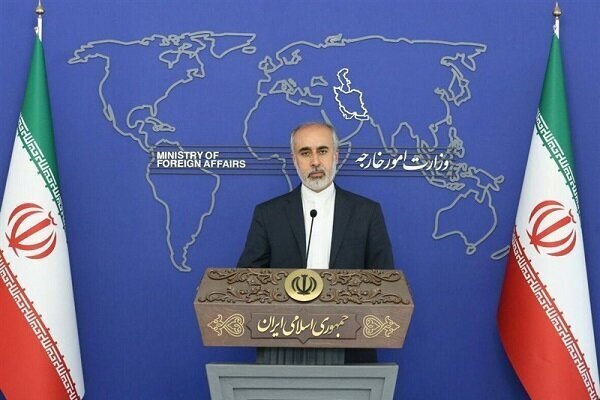Nasser Kan'ani, the ministry's spokesman, said on Monday that Tehran is following up on Yoon Suk Yeol's "interventionist" remarks concerning the quality of the Islamic Republic's relations with the UAE.
Addressing the UAE-based Korean forces during a recent trip to the Persian Gulf Arab state, Yoon drew a parallel between the alleged threat posed to his country by North Korea and what he called the "threat" facing Abu Dhabi from Iran. He then described Iran as the "most-threatening nation" to the UAE.
Reacting to his remarks, Kan'ani said, "The quoted remarks of this [South] Korean official reveal his complete unawareness of the historical and cordial relations between the Islamic Republic of Iran and the Persian Gulf littoral countries, including the UAE, as well as [his lack of knowledge about] high-speed and positive developments [that are unraveling] in this regard.”
"The Foreign Ministry is diligently pursuing the recent positions of this country, especially the remarks made by its president, on the relations between Iran and the UAE, which totally lack diplomatic validity," the spokesman stated.
Kan'ani added that Iran is awaiting the South Korean Foreign Ministry's explanation in this regard.
The new development came at a time that in addition to its unfriendly positions on Iran, South Korea has been holding billions of dollars in Iranian funds under the pretext that they have been frozen as a result of the unilateral sanctions imposed by Washington on Tehran.
Iran was the largest supplier of oil and condensate to South Korea before the US sanctions were enacted. The blocked funds are related to shipments delivered to South Korean refineries in 2017.
South Korea was the third largest customer of Iranian crude oil and the number one buyer of Iranian condensate, a very light form of crude, before 2018 when the administration of former US President Donald Trump pulled out of a nuclear deal with Iran, officially known as the Joint Comprehensive Plan of Action (JCPOA).
Unofficial estimates suggest Iran has more than $7 billion worth of funds in two South Korean banks that it cannot access simply because banks and authorities in the country refuse to process them due to fears of facing US penalties.
MNA/PR



 08:13 - 2023/01/18
08:13 - 2023/01/18






















Your Comment